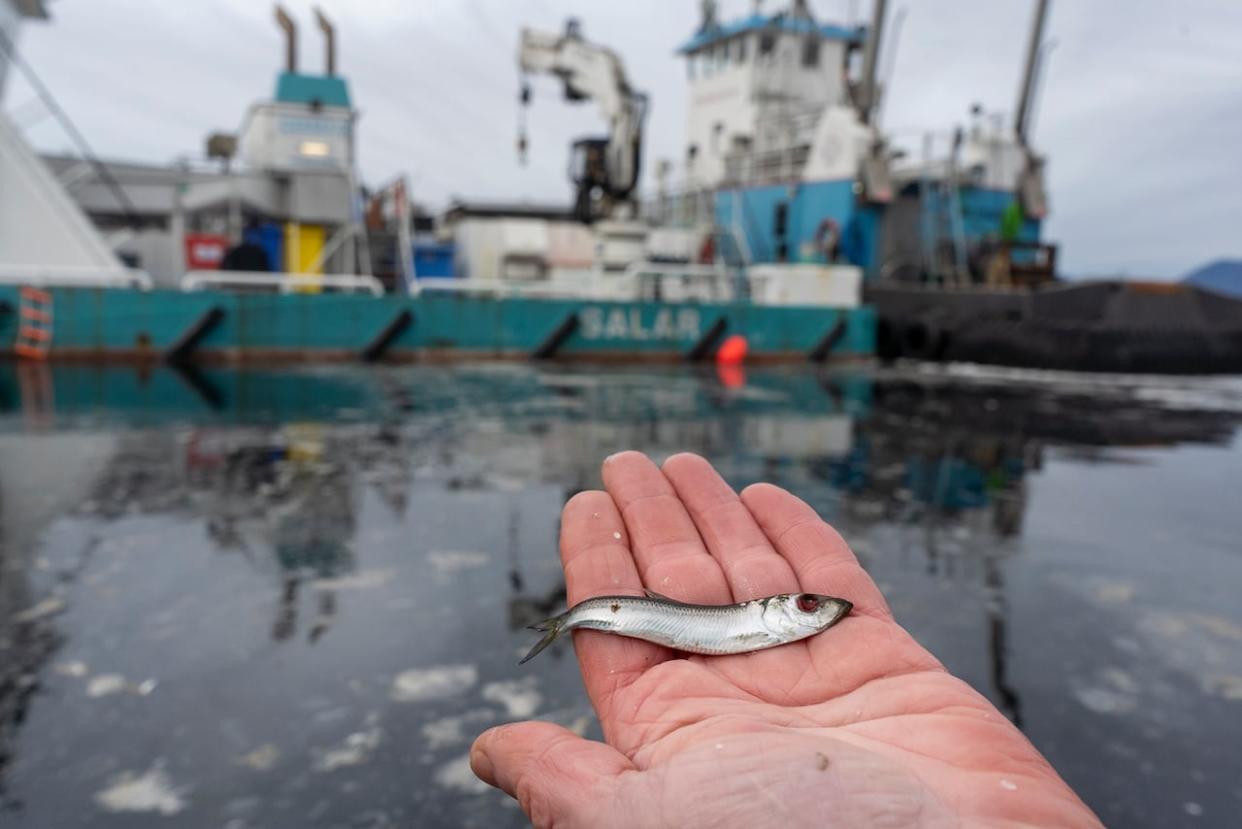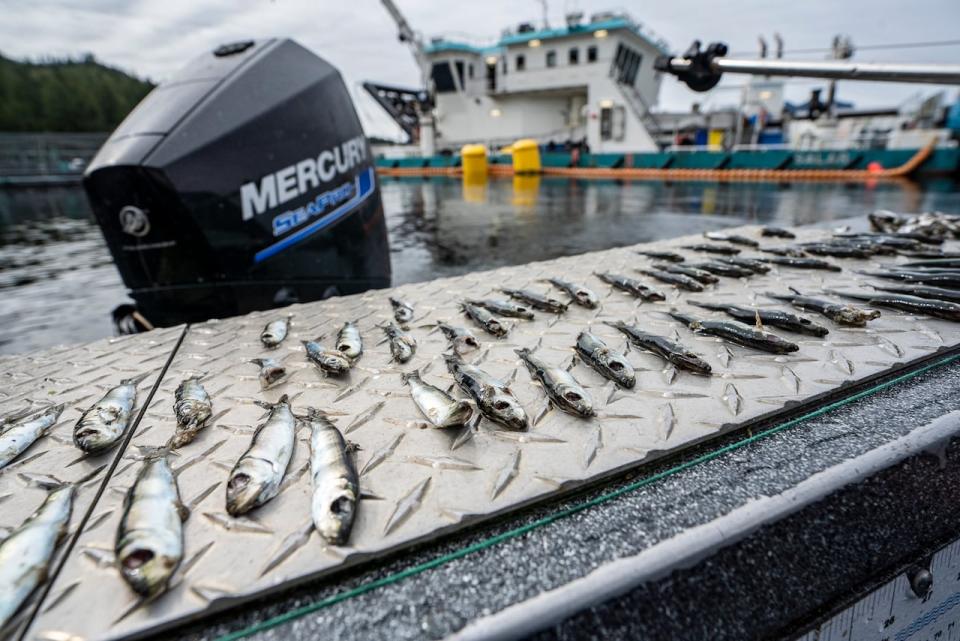Huge spike in herring killed in B.C. salmon farm operations: DFO data

The Watershed Watch Salmon Society is sounding the alarm on data collected by Fisheries and Oceans Canada (DFO) that show an unprecedented spike in wild fish killed in B.C. salmon farm operations.
According to DFO, 817,000 wild fish — nearly all of them herring — were reported killed in open-net pen salmon farm operations in 2022. That's an almost five-fold increase from the previous year and a 21-fold increase from 2020.
"This problem is getting significantly worse," said Stan Proboszcz, senior scientist with Watershed Watch Salmon Society. "We're seeing unprecedented levels of wild fish caught and killed by the salmon farming industry, and that's a great concern."
Documents obtained by biologist and activist Alexandra Morton through a Freedom of Information request show DFO staff discussing internally the "significant negative attention" expected from the publication of the data.
The documents describe an estimated 130,000 herring that were killed in Clayoquot Sound in March 2021 by salmon farm operator Cermaq Canada during a mechanical sea lice removal treatment known as hydrolicing.
During DFO's follow up with Cermaq, the company provided information that over 700,000 herring had died at a number of Cermaq facilities "associated with the use of a specific hydrolicer vessel," according to the documents.
Hydrolicing is a process that essentially power washes farmed salmon to remove parasites like sea lice. Smaller wild fish, including juvenile herring, can also be sucked up by the hydrolicing vessel and killed in the process. The herring are attracted into open net-pens by the food and lights used to grow farmed salmon.
'Herring eyes blown out'
"One of my colleagues witnessed one of these large herring fish kills and there's some really shocking images whereby the herring have their eyes blown out. It's actually quite horrific," said Proboszcz.
In an emailed statement, Cermaq Canada said the spike in the herring kill numbers "coincided with an unprecedented increase in wild herring biomass near our farms on the west coast of Vancouver Island," and that ongoing efforts are "significantly mitigating incidental catch."

Dead herring without eyes were collected by Clayquot action near a Cermaq hydrolicing vessel. (Submitted by Clayoquot Action/Jérémy Mathieu)
"In 2022, incidental herring catch at salmon farms along Vancouver Island's west coast was 0.086 per cent of the estimated Pacific herring spawning biomass in the area — a five-fold increase over a 10-year average of 0.015 per cent," reads the statement.
In a statement, DFO said an investigation into the herring kill resulted in changes to the conditions of licence for aquaculture companies, "to ensure that sea lice treatments do not cause this type of impact on wild fish."
Reporting requirements have also been tightened, DFO added.
Herring are considered a keystone species in the Pacific food web that support other animals including salmon and whales. They were once plentiful enough to support a thriving fishery in B.C. but stocks have been in steep decline.
Probszcz said the herring kill is another example of how problematic net-pen salmon farming is in B.C. He said it's time for the federal government to live up to its promise of removing salmon farms from the ocean, which is supposed to happen by 2025.
"They've had decades to try and solve these problems and we're seeing that some of them are actually getting worse," he said. "The Prime Minister actually promised in writing in a mandate letter to the Minister of Fisheries to transition British Columbia and this industry out of the water. And there's just been a bit of languishing on that promise."
The premier of the province agrees. David Eby said it's time for government and industry to act and move net-pen salmon farms out of the open ocean to closed containment systems.
"For the net-pen fish farms, I think it's safe to say that the social licence for those that just sit in the ocean and cause the death of other fish, has expired," said Eby.
The sentiment was echoed by Heiltsuk Chief Marilyn Slett, whose nation's traditional herring spawn on kelp fishery was shut down by DFO last year.
"The time to step up and protect the species is now," said Slett. "We really don't have time to not take any action."
Details of a plan to transition away from open net-pen salmon farming that were supposed to be announced this past summer have yet to be unveiled.
DFO said 2025 remains the transition target and that it continues to engage with partners and stakeholders in an extended consultation period. It said no decision has been made on a transition plan.


